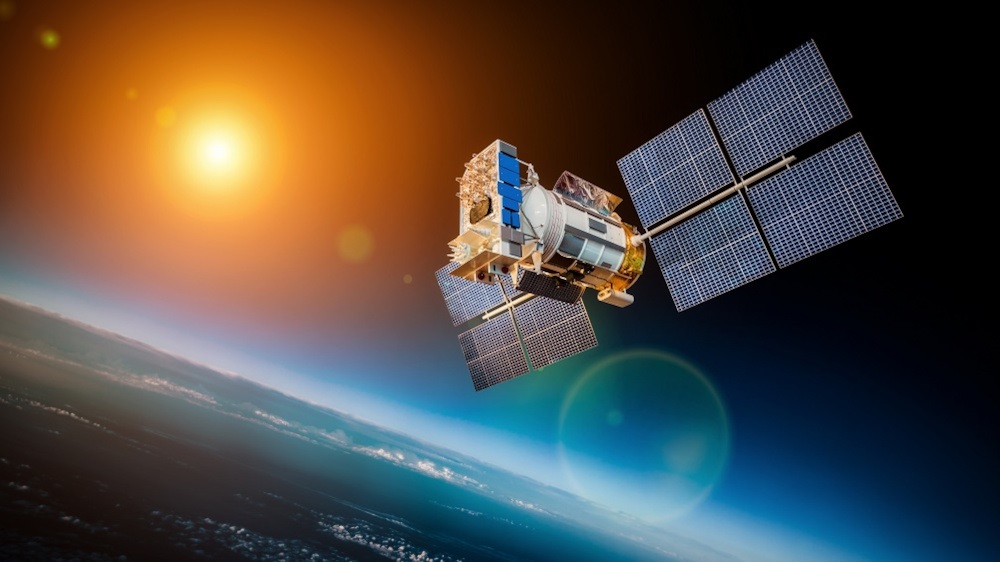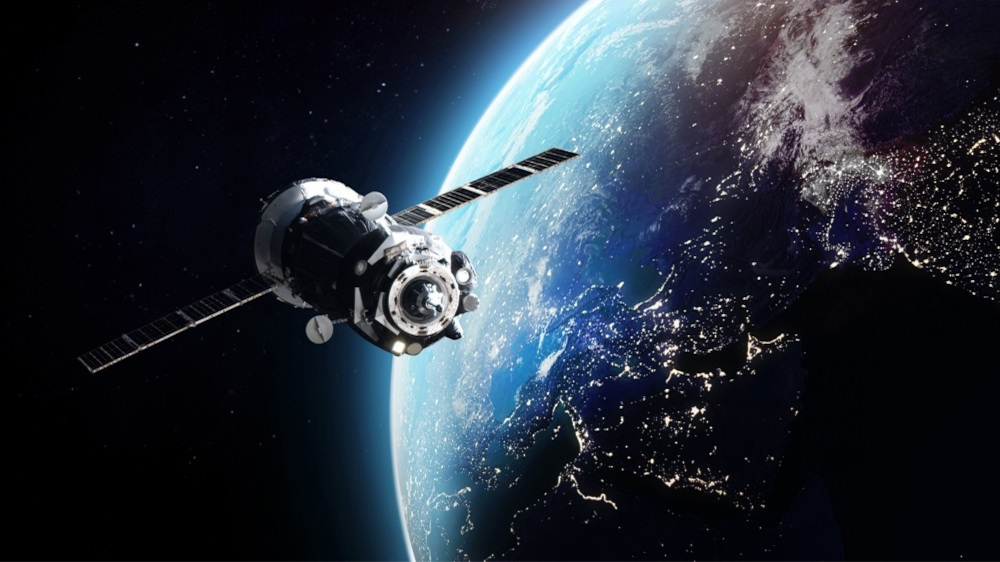
Space business plays an increasing role in warfare
Commercial space services have also been used in warfare for decades, but their importance has increased further in the 2000s. One reason for this is the strong growth of space business and the development of capabilities, but another is the general aim of the armed forces to outsource support functions.
The use of commercial space services will provide the armed forces with capabilities that the state's own resources would not be sufficient to develop independently. On the other hand, they also increase dependencies outside the armed forces and may expose civilian companies in the sector to use of force.
The article does not correspond to the official position of the Defence Forces but to my own views on the importance of commercial space services in warfare. At the moment, I am writing a doctoral thesis on the subject at the National Defence University.
Development of outsourcing of support measures for the armed forces
Companies typically build systems for use by armed forces in the war industry. In recent decades, companies have also started to offer more services instead of systems. In this context, companies themselves use their systems and produce services for the use of armed forces. Historically, however, this is not a completely new phenomenon; it can be partly linked to the long history of mercenaries and the commercial military service sector.
The partial outsourcing of functions necessary for modern warfare from armed forces to companies began in Western countries after World War II. General development in the outsourcing of public administration functions has been regarded as one of the reasons, and the outsourcing of armed forces functions was also a continuum of this development. With regard to the armed forces, the dissolution of the Soviet Union also contributed to the development, which led to cuts in funding and personnel. At the same time, technological advances and the pursuit of technological advantage increased the costs of the armed forces. Military technology is expensive and some capabilities are disappearing beyond the reach of smaller nations.
The number and competence of personnel needed to operate the systems is another problem. Outsourcing was seen as one solution to these problems. The armed forces began to focus on the core functions of warfare and support functions were outsourced to companies. Outsourcing, however, weakens the management of these functions. Almost all armed forces are already dependent on services provided by companies. If the availability of services suffers, the warfare capability of the armed forces also suffers. Another drawback is the blurring of the line between civilian and military activities, in which case the use of force may also target civilian companies providing services to the armed forces.
Treaties related to space warfare and international law
One of the principles of the 1967 UN Outer Space Treaty is the peaceful use of outer space. However, the Treaty does not significantly restrict military activities, and it is often seen to be in force only in peacetime. International humanitarian law, or the rules of war, limits all warfare, including space warfare. The rules of war include the principles of military separation and proportionality. The principle of separation is based on limiting the use of military force to military targets. The Additional Protocol to the Geneva Convention of 1949 defines a military target as follows: “Armed action must be strictly limited to military targets. Military targets include targets the nature, location, purpose or use of which constitute an important part of military activity and the complete or partial destruction, seizure or rendering harmless of which constitutes a decisive military benefit under the prevailing conditions.”
According to the principle of proportionality, any use of armed force must be proportionate to its objective. The activities must bring clear military benefits and the collateral damage must not be unreasonable. Civilian targets can often also become military targets based on their purpose of use (see previous definition of military targets). The use of force against commercial satellites or ground stations may be considered justified if they are used in military activities.
This does not mean that all methods of warfare are acceptable. The destruction of satellites by missiles can be considered forbidden, as the damage caused by space debris resulting from the destruction of satellites does not necessarily meet the principle of proportionality. The military benefits gained from the destruction of an individual satellite are not significant, but the amount of space debris generated is high. Space debris can indiscriminately damage satellites and interfere with all space activities.
Under the Outer Space Treaty, states have international responsibility for all national space activities, including the space activities of companies. Space companies sell services globally and customers may be parties to an armed conflict even if the registration country is outside the conflict. This can be seen in connection with the development of warfare in the 17th to 19th century, when one of the key reasons for the stronger control of warfare by nation states was the desire to prevent the state from being dragged into the war due to private actors.
From the beginning of the 19th century onwards, central government neutrality was also considered to include regulation of individual citizens and other national actors. The warring states, on the other hand, had to respect the neutrality of a neutral state. According to the 1907 Hague Convention, companies of an impartial state may sell services to war parties, but they must be equally available to both parties. For example, the legal guide of the French armed forces states that the sale of national space services must be stopped immediately at the start of the war in order to maintain the neutrality of the state.
Military significance of space business
The benefits and disadvantages of commercial satellite services in the use of the armed forces can be considered similar to the general outsourcing trend described earlier. Due to the high costs, space activities were for a long time mainly within the reach of the superpowers. Due to the miniaturisation of technology, serial production and lower launch prices, space activities have become available to everyone. This has led to a sharp increase in the number of satellites at the moment. A significant part of the growth is due to commercial satellites, while the number of military satellites has not increased significantly. On the other hand, space business relies heavily on state actors as customers in many areas. Many companies still base their business growth and success specifically on armed forces as customers. The space capabilities of many commercial companies already exceed those of many countries.

In warfare, satellites support other domains of warfare. Satellites are used, for example, for intelligence and surveillance, command and communications, and positioning. Satellites improve the mobility, accuracy, efficiency or speed of systems and troops in other domains of warfare. Most modern combat systems are connected to satellites. One of the fundamental principles of warfare is the race to develop capabilities and their counter-systems. The use of outer space has also become increasingly controversial. Space warfare can be seen as a struggle for the usability of satellite services. This does not necessarily mean the destruction of satellites. The usability of services can also be disturbed, for example, by destroying ground stations, cyber interference or by disrupting the reception of satellite-launched data by means of electronic warfare.
Commercial space services enable armed forces to use capabilities for which they would not have the resources independently. The drawbacks are, on the other hand, the weakening of the command of the armed forces to the use of capabilities, the increase in dependencies arising from external service providers and the possible threat of using force against civilian companies. At worst, commercial space services may also be used by both parties to an armed conflict.
So far, not all space activities are available as outsourced services. In other words, some of the functions are still dependent on capabilities under the control of the states themselves. However, it is important to identify areas of space activities where commercial services bring significant performance gains. The armed forces cannot neglect their commercial capabilities despite the dependencies they bring, but it must be possible to ensure the usability of services in all circumstances. The means for this include the use of several service providers and ensuring sufficient self-sufficiency even without companies' services. For any activity, it is not possible to rely entirely on an individual enterprise. At the same time, the diversity of the services and companies used increases the resilience against military influence.
The use of satellites, including commercial satellite services, has been part of the warfare since the Vietnamese and Gulf Wars. Now the utilisation of commercial satellites has been considerably wider in Ukraine. Ukraine has relied heavily on commercial space systems, while Russia has mainly used its own state capabilities. The Western commercial services used by Ukraine are more advanced than those used by Russia, but on the other hand, some of them have been interrupted due to political and economic disagreements. The warfare has also targeted the systems of space companies from non-war countries and caused various disruptions to space services used by civil society, for example through GNSS interference.
In Ukraine, Western countries are not neutral because the sale of Western services to Russia has been prevented by various sanctions. Russia's invasion of Ukraine is, however, contrary to international law and under the UN Charter, other states may support the country that has been attacked. However, the loss of neutrality only through material support or commercial services provided to the other party does not yet make the Western warfare parties. According to general interpretations, this would also require the direct participation of the armed forces in warfare.
However, the services sold by Western space companies are actively involved in warfare in Ukraine. This is good, because Ukraine needs all the support we can give. From the perspective of states, the use of military force against the systems of these companies is not entirely problem-free. The right to self-defence under the UN Charter gives registration states the right to defend national space systems even if, for business reasons, companies had designated their systems as military targets. However, there is no obligation for states to do so. States must make a choice to act if a national company is attacked.

Finnish space industry and warfare
In the number of satellites, Finland is among the twenty largest space states. On the other hand, this is only one area of space activities and, in this respect, a deficient indicator for examining overall capacity. For example, Finland does not have its own launching capability and ground station operations are relatively small. In addition, approximately 75% of the 26 satellites in orbit belong to an individual company, Iceye. Thus, one large enterprise also distorts the overall picture. Nevertheless, Finland is a significant space state in relation to the country's population.
From the perspective of Finland's defence capability, this is a good thing. The defence administration's materiel policy strategy emphasises the importance of military security of supply. Production, technologies and expertise critical to military national defence must be available in all circumstances. This is partly supported by the national space industry. Although materiel policy emphasises the procurement of systems rather than services, a strong national space industry from the perspective of services is also in the interests of the defence system. On the other hand, despite Finland's relatively strong space industry, the number of companies and the number of services they offer are limited. The overall solution cannot be sufficiently diverse and resilient by relying solely on national companies.
Space defence was made public in Finland in the 2021 Defence Report. It was seen as protecting national defence functions and the rest of society from threats against space and safeguarding the functioning of space systems and services critical to society in all circumstances. In other words, space defence covers at least the protection of space systems used by the Defence Forces. If, on the other hand, services are sold to the armed forces of another state, the matter is no longer quite as clear. Should space defence also protect Finland's economic interests in outer space in general? What if the Defence Forces use the same commercial satellite services that are subject to military force on account of another customer - should the Defence Forces, in this case, participate in the protection of commercial activities for their own benefit?
The matter has also been left open to interpretation in the United States. The Commercial Space Integration Strategy notes that armed forces may be used to defend commercial systems. It does not specify in more detail the circumstances in which this is done and where it is not. Vagueness can also be intentional, as it also creates uncertainties for potential opponents. On a general level, States can be seen to have four operational exchanges if the use of military force is directed at national space companies:
- The sale of space services to foreign armed forces altogether will be prevented by regulation, and the possibility of using force will be prevented.
- Let companies act at their own risk and it is stated that the state does not support companies that are subject to the use of force.
- The company will be supported informally, for example in cyber defence operations, but the public will be given the impression that the company operates at its own risk.
- It is publicly stated that the use of force against an enterprise is also an attack on the state and will be responded to.
The armed forces of different countries are large customers, so the first option may cause significant harm to companies' business operations. The last option, on the other hand, requires that the state is actually prepared for this. In practice, the majority of states seem to have opted for the second or third option. Based on public information, it is more difficult to assess in more detail the position of different countries between these options.
The vision of Finland's current space strategy is that by 2025 Finland would be the most attractive and agile space business environment in the world. This can be used to see connections to national space defence. Excessive regulation of the sale of business services for the use of other armed forces will certainly make the sales less attractive. Defending national space systems in all circumstances is not necessarily a realistic option. In other words, Finland is probably also in favour of the two middle options.
Finland's space strategy is now being updated. Hopefully, the future strategy will have a stronger link between national objectives, the national space industry and space defence. A more extensive discussion of the topic could be possible, for example, in the Space Strategy for Security and Defence advocated in Antti Korpi's earlier article. National regulation and objectives are directly linked to companies' operating possibilities and development.





